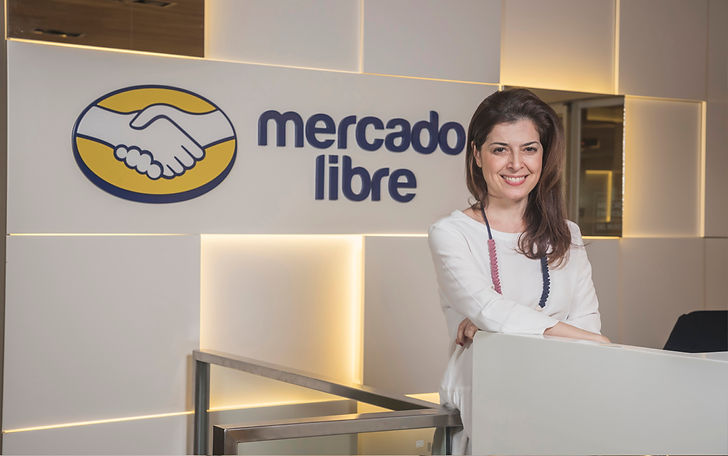Impact America Originals: The State of Impact I 2025 I Download Now
A Conversation with Maria Guadalupe Marin, of Mercado Libre
OCTOBER I 2024
.png)
Mercado Libre, Latin America’s largest company by market capitalization (NASDAQ: MELI), recently announced a new investment round for Regenera América, their flagship environmental initiative aimed at protecting Latin America’s unique biomes and fostering restorative activities. The program now supports nine projects across Brazil and Mexico and has invested USD $23.7 million to restore and conserve over 15,000 hectares of native biomes.
To gain insight into how Regenera América came to be, we sat down with María Guadalupe Marín, Mercado Libre’s Director of Sustainability.
Becoming Mercado Libre’s First Director of Sustainability
Q: How did you step into the role of Mercado Libre’s first Director of Sustainability?
María Guadalupe Marín: I studied Communications in university and spent many years working as a communications director at a consulting firm specializing in crisis management. Back then, the concept of Corporate Social Responsibility (CSR) was just beginning to emerge, but sustainability as we know it didn’t really exist. CSR was often a reactive response to crises, and I felt like it wasn’t enough.
As I advanced in my career, I realized that adopting a sustainability mindset allows companies to fundamentally rethink their operations. Rather than merely responding to crises, companies can proactively be a force for good. This passion led me to Mercado Libre in 2016, where I was tasked with creating a sustainability strategy aligned with the company’s growth.
Q: How did Mercado Libre develop the idea for Regenera América?
María Guadalupe Marín: The idea emerged after several years of internal discussions. In 2016, we measured our carbon footprint for the first time and initially considered purchasing carbon credits to achieve carbon neutrality. But we realized this was a short-term fix. We wanted to focus on a long-term approach that would fundamentally transform the way we operate.
We asked ourselves big questions: How can we expand our electric vehicle fleet? How can we increase our use of renewable energy? And when it came to our unavoidable emissions, we considered carbon credits but asked, "What if we invest in reforestation and conservation projects in the region instead?" We wanted to take the harder, more impactful route.
From there, we explored how we could catalyze an ecosystem of restorative activities. It wasn’t just about neutralizing our carbon footprint—it was about making a long-lasting difference through ecosystem restoration. Over the last three years, we’ve been learning and evolving, partnering with experts to understand the challenges of restoration projects, from managing tree nurseries to working with landowners.

Q: How did you translate this vision into financial and legal structures that comply with the requirements of a publicly traded company?
María Guadalupe Marín: It was a challenge, to say the least. In 2021, we launched our first sustainable bond, raising USD $400 million to fund projects with environmental and social impact. The bond focuses on reducing our environmental footprint, promoting financial inclusion, and fostering social development.
As a publicly traded company, we have a responsibility to provide transparent reporting on how these funds are used. Developing this structure also helped us establish governance and accountability for the projects we fund. We now require every project to undergo extensive due diligence to ensure transparency and impact.
Q: How do you select which projects to fund through Regenera América?
María Guadalupe Marín: Environmental impact is our top priority, but we also pay close attention to the team behind each project. We look for teams that are resilient, adaptable, and have strong problem-solving skills. Experience and past successes matter, but so does the willingness to learn and collaborate.
We aim for maximum environmental impact—both in terms of land regenerated and carbon sequestration potential. Carbon markets can complement conservation funding, but biodiversity and community impact are just as important. Water management is another key factor we consider.

Q: What has been the biggest challenge so far with Regenera América?
María Guadalupe Marín: The most difficult part has been finding enough high-quality projects to finance. While we’re ready to invest more, it’s challenging to find projects that meet all our criteria. We knew from the beginning that building an ecosystem of restoration activities wouldn’t be easy, but we’re committed to being a catalyst for this change. We work with project developers, offering feedback to help them improve and potentially qualify for funding in the future.
Q: You’ve recently announced a new round of funding for projects. What’s next for Regenera América?
María Guadalupe Marín: We’re still learning and facing challenges, but as entrepreneurs, we’re used to pushing boundaries. We’re committed to making carbon markets work for Latin America and helping protect our natural heritage. It’s a long-term effort that won’t happen overnight, but we’re determined to make an impact and share what we learn along the way.
.png)
.png)